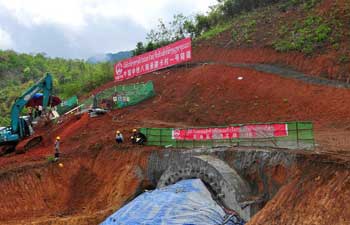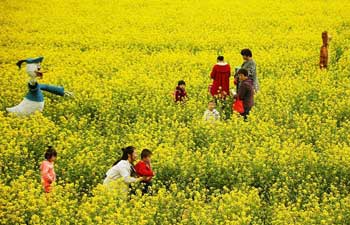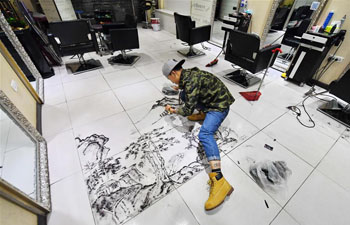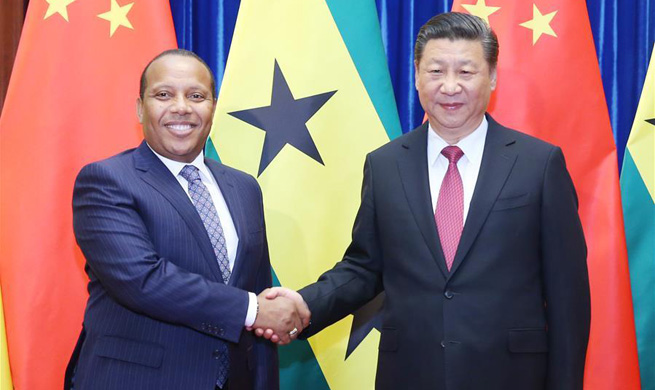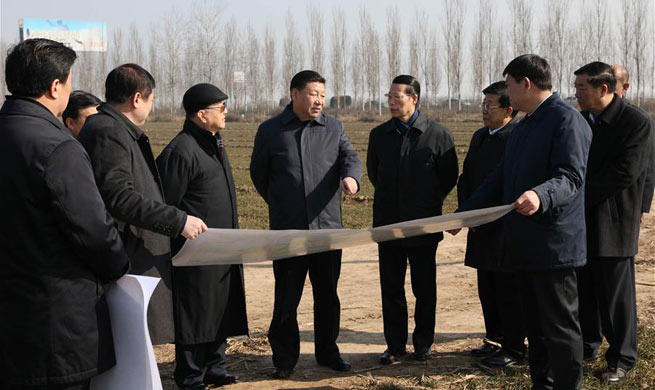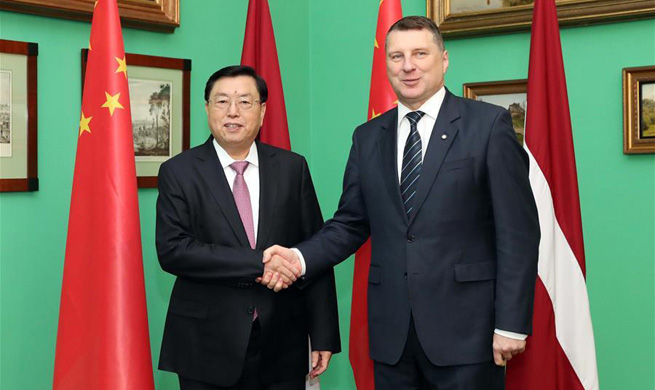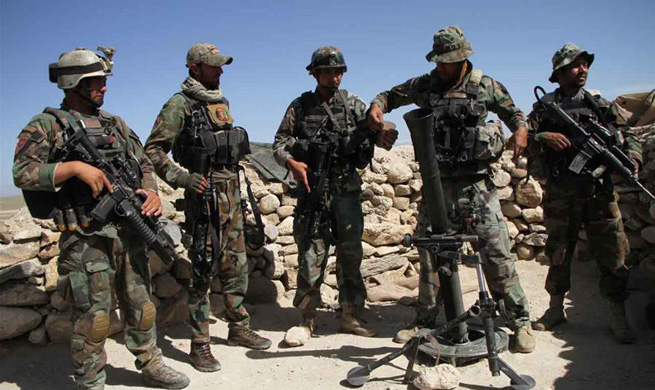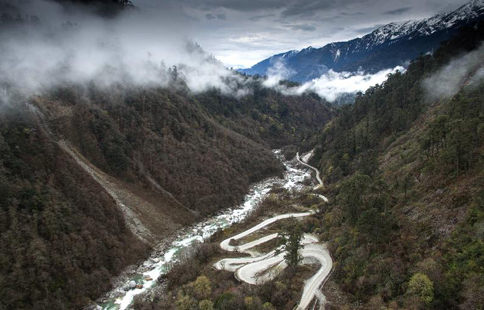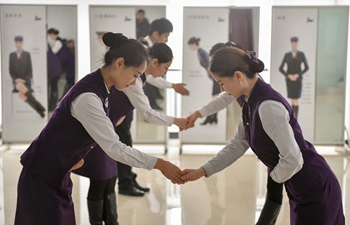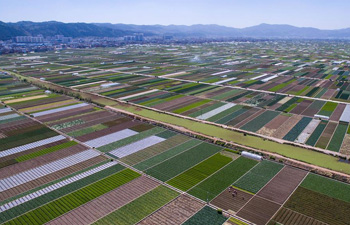by Ronald Ssekandi
LAMWO, Uganda, April 14 (Xinhua) -- It was a normal day at Pajok Primary School. The head teacher had just finished briefing the pupils during the morning assembly.
At the neighboring Ayela Primary School, it was the same routine until hell broke loose. Gunfire started and children were asked to run home. Several of them, according to Joseph Okumu, the head teacher of Ayela Primary School, were killed.
Okumu rushed home to rescue his children and wife but did not find them. Only his 76 year-old-mother was left in the house.
Okumu quickly gathered what he could and rode his bicycle carrying with his mother for about 15 km to the neighboring northern Ugandan district of Lamwo.
This was another cycle of movement sparked off by continued fighting between government troops and rebels in South Sudan.
The attack on Pajok about two weeks sparked the relocation of over 5,000 South Sudanese to Uganda fleeing for safety. Most of them, according to the UN Refugee Agency, are women and children.
As the world focused its attention on war in Syria, the children in this part of the world continue to ponder where their future will be.
Okumu's wish is for his two daughters, who he later found in Uganda after they fled with their mother, to continue schooling.
He said while his future might be ruined, at least that of his children should be guaranteed through education.
At Ngomoromo refugee reception center here in Lamwo, hundreds of children have been relocated to another refugee settlement over 50 km away from the border.
Aid agencies argue that that the reception center is overcrowded, which may cause health hazards.
"They are not in the best of conditions, many children are malnourished, there are pregnant mothers who need help," Joy Bamutya, a refugee officer told Xinhua.
South Sudan has plunged into fighting since late 2013 between forces loyal to President Salva Kiir and his then deputy Riek Machar.
The UN said it needs urgent help to provide humanitarian relief not only to the victims of the Pajok attack but also the other South Sudanese who have fled fighting. UN figures show that of the over 1.5 million South Sudanese who have fled fighting, over 800,000 are in Uganda.
Many of the refugees occupy Bidi Bidi Refugee Settlement in northwestern Uganda. It is now ranked the largest settlement in the world, according to UNHCR.
"Uganda has turned out to be the biggest refugee host country in Africa with over 1.3 million refugees. Uganda needs support and this operation is critically underfunded," Wellington Carneiro, Field Officer UNHCR Lamwo, told Xinhua.
Uganda, which is globally acclaimed to having an open refugee policy, has said it is at the brink of breakdown as it can no longer handle the influx of the thousands of South Sudanese entering its border.
PEACE EFFORTS
Ugandan President Yoweri Museveni on Tuesday met the visiting South Sudan First Vice President Taban Deng Gai.
According to a statement the president issued on his social media platforms, the meeting among others discussed restoration of peace in South Sudan.
"I call upon all people of South Sudan to refrain from violence. The only politically viable way is peace and dialogue to achieve development," Museveni wrote.
The meeting came almost a week after Museveni met some of South Sudan's leaders in opposition.
Apart from the bilateral efforts to restore peace in the world's youngest nation, there have been regional efforts although they are yet to yield fruits.
Aid workers argue that what is most needed is restoration of peace to stop the influx of refugees in the face of dwindling international funds to support them.




